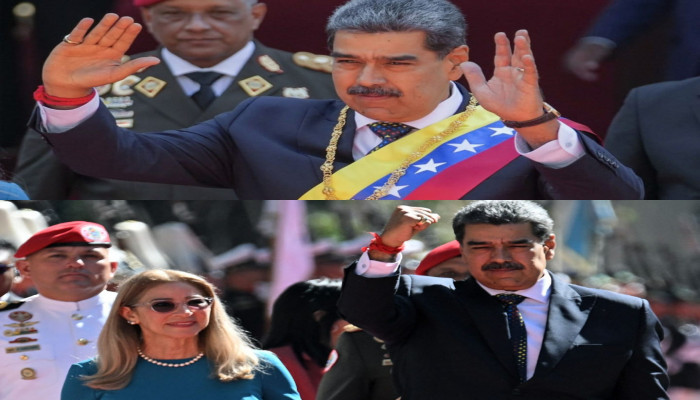Nicolas Maduro begins controversial third term despite election legitimacy dispute
- In Reports
- 02:13 PM, Jan 11, 2025
- Myind Staff
Nicolas Maduro was sworn in for his third term as Venezuela’s president on Friday despite widespread disputes over the legitimacy of the election process. Critics, including opposition groups, have raised allegations of irregularities in the election. They said it had been a controversial election in which his opponent Edmundo Gonzalez declared himself the legitimate winner, accusing him of voter fraud, according to the report by Al Jazeera.
Maduro is starting his new term in spite of international pressure and US sanctions, which identified Gonzalez as the legitimate victor of the July election.
“May this new presidency bring peace, prosperity, equality and a new democracy,” Maduro said at the swearing-in ceremony, reaffirming his responsibility to support the country’s laws. “I swear on history, on my life, and I will fulfil my mandate,” he was quoted as saying by Al Jazeera.
Maduro's inauguration came a day after opponent leader Maria Karina Machado led protests against his government, Al Jazeera reported. Machado's party claimed she was shortly detained during the protests. Following her release, Machado expressed her determination to challenge Maduro's rule on social media. Maduro, who came to power after left-wing leader Hugo Chavez died in 2013, has been reprimanded for authoritarianism and for managing Venezuela's economic and political difficulties.
In 2018, Venezuela faced a contentious election that restricted participation of opposition leaders. Post-election opposition leader Juan Guaido proclaimed himself president and numerous Western nations, including the United States, accepted him as such, according to Al Jazeera.
Following Guaido's declaration, the United States put more sanctions on Venezuela, exacerbating its economic problems. Since then, 7.7 million Venezuelan residents fled the nation due to political repression and financial uncertainty.
The 2024 July election raised opposition hopes of peacefully ousting Maduro, but he quickly announced victory with 51 per cent of the vote. Venezuela's electoral authorities favoured Maduro, although they did not provide a formal tally of the results intensifying criticism over the transparency of election process. The opposition released its list, claiming that Gonzalez had won by a huge margin.
Al Jazeera reported that some of South America's leftist leaders also condemned the election results and protests spread after Maduro's declared victory. The government crackdown led to 2,000 arrests, and death of 25 people post-election protests. Opposition continued to exert pressure on Maduro's administration, calling for demonstrations in the run up to his inauguration.
Although several hundred protesters joined Machado on Thursday, voter turnout was lower than post-election protests. Maduro's administration accused the opposition of conspiring with foreign powers to depose him and sought an arrest warrant for Gonzalez, who fled Venezuela and requested refugee in Spain.
An experienced diplomat, Gonzalez visited the United States earlier this week and met with President Joe Biden and expressed his concerns about Maduro's highhandedness. The White House voiced grave concerns over Maduro's suppression of nonviolent demonstrations and democratic campaigners.
As reported by Al Jazeera, the US also recognised Gonzalez as Venezuela's "president-elect" and criticised Maduro's inauguration as a "desperate attempt to seize power."
In response, the United States increased its prize for Maduro's arrest, from $15 million to $25 million. The US Treasury also announced sanctions on eight of Maduro's associates, including Hector Andres Obregon, the president of Petroleos de Venezuela, the state-owned oil company.







Comments